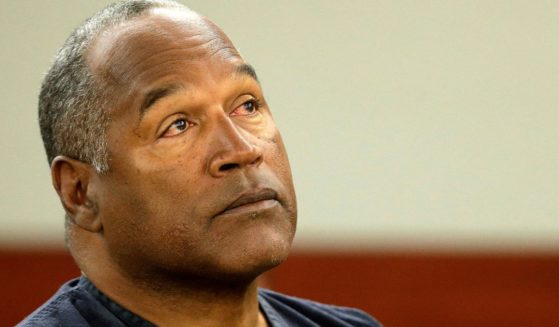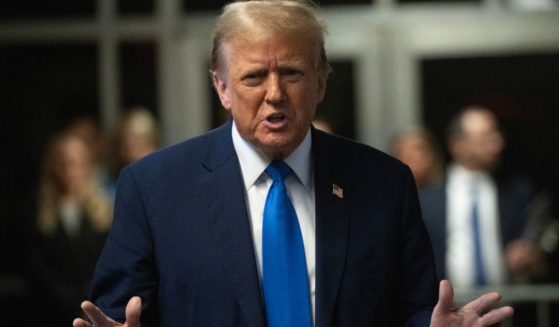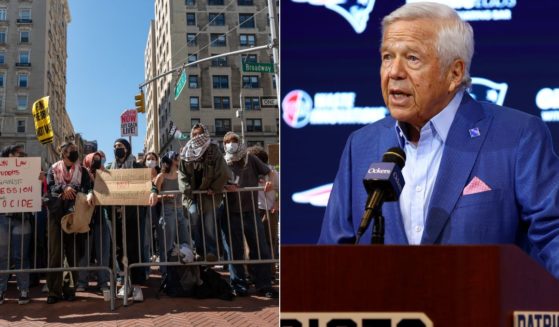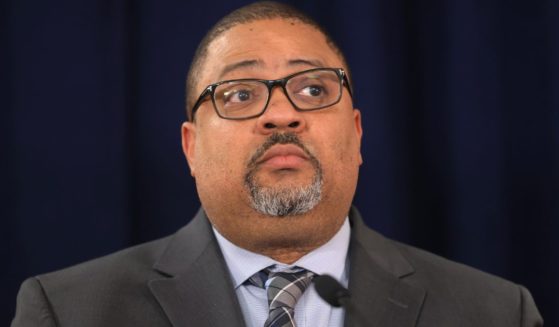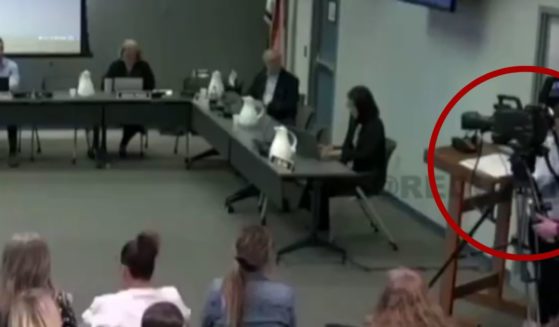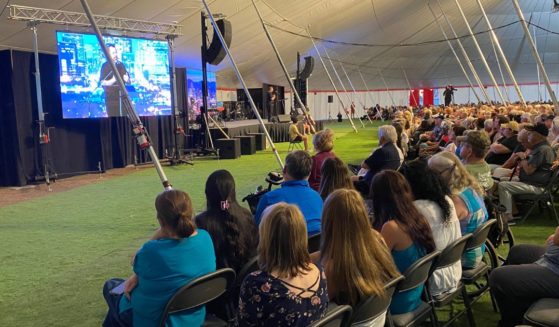As the Pandemic Passes, How Long Will the Authoritarian Aftermath Last?
For roughly 75 percent of the United States, it appears that things are returning to business as usual.
According to The New York Times, 37 states have reopened or have plans to reopen by the end of May, with many states also easing mask restrictions on those who are vaccinated. By June or later, 45 states will reopen, leaving five states with no set reopening date.
Meanwhile, 50 percent of people have been inoculated with at least one shot of the vaccine, while 40 percent of the eligible population is considered fully vaccinated, according to The Times. Among many parts of the population, a sense of joy has erupted: Things can finally return to normal.
The spring air ushered in social normality. Sports fans are packing stadiums, live music can be heard in person and children are returning to the classroom. The era of the public health emergency, mask mandates and social restrictions is slowly ebbing.
But overcoming the aftermath of this past year and the actions taken to mitigate the spread of the virus will undoubtedly be accompanied by unintended adverse effects that will slowly manifest in forthcoming years. Yesterday’s scars will not disappear overnight.
Of course, the country can celebrate decreasing infection and death rates, but the authoritarian shadow of this past year will be difficult to rid.
This is not to make an assertion that the state’s actions over the past year were justified or not, as that is asking a separate question. One could argue soundly that it was justified to restrict rights and liberties or lead the public to pasture in the fields of governmental paternalism amidst a global pandemic.
Nonetheless, one cannot deny that the state has demanded obedience at the expense of personal freedom. In the end, actions will inevitably cause blowback.
Government Paternalism
On any given spring morning last year, dutiful Americans flocked to their televisions and computers to ascertain what behavior their leaders would recommend or allow for those foreboding weeks ahead.
A sense of urgency enthralled people. A national emergency was declared at the federal level and the utility of foresight and reason vanished. And only one authority could fill that emptiness in people’s minds. At any moment, your town could be the new epicenter of transmission.
At that point, public officials deemed that mitigating the chance of community spread was the only means to pursue.
Governors and state officials enacted a multitude of new rules and regulations that closed schools and dining spots, restricted attendance at sporting events, created mask mandates, enforced social restrictions and — most perniciously — allowed the government to retain more emergency power. In some cases, public health dictates went so far as to direct foot traffic inside stores and shut down outdoor recreational activities.
In this highly restrictive setting, the freedoms and responsibilities requisite to living in a liberal society were lost. Personal voluntary decision-making was no longer deemed a viable option by which society could mitigate the spread.
Individuals and organizations could not determine what was best for themselves, nor their community. Their supposed best interests were to remain indoors, refrain from contacting others, listen to public experts and obey the authorities. In this setting, people were merely instruments.
The policies put in place were devised as preventative measures, instead of reactionary. And there is little doubt that this caused people to relinquish their sense of responsibility. When someone is bossed around and beset by arbitrary overreach, they lose their sense of personal will, forfeiting the control they have over their person.
To rid a sense of agency from individuals will only breed future complacency. Living a life absent of any responsibility is adverse in any society that values liberty.
Enforcement and Social Policing
This pandemic era social dynamic persisted for approximately a year, and the only method offered to escape this imprisonment was to receive inoculation. But before one could get vaccinated, the rule of thumb was to practice and abide by standard social distancing and mask-wearing norms.
Absolute compliance was not attained, however. The state required an enforcement mechanism. But enforcing social distancing measures could not be solely accomplished by police departments.
The New York Times reported on May 4, 2020, that a segment of America had “turned informant,” reaching out to police departments, public health authorities and employers to ascertain whether people were violating social distancing rules and stay-at-home orders.
Throughout the United States, private citizens’ complaints led to business shutdowns, “citations and police scoldings to restaurant and bar owners whose patrons are lingering too close to one another.”
This citizen action gave some people a purpose during a period of great distress and plight. In any other circumstance, this sort of action would garner popular contempt.
But in this situation, the state created circumstances in which public shaming and social policing became an invaluable element of the mitigation effort. Obedience became the currency of the day.
A good citizen, tasked with searching for coronavirus dissidents, was awarded the legitimate authority to report their fellow citizens on the basis of assumption, with little regard for the impact of civil and criminal penalty.
The state effectively deputized most of the population, enabling and incentivizing the formation of “the other.” In the forthcoming years, American society will grapple with the looming aftermath of incentivizing citizens to police the lives of others for the cause of the public good.
Power often leads to corruption and abuse. And it is easier to give someone power than to take it away, as some feel empty without it.
Experts and Statism
During the fighting of both World Wars, governments were tasked with maintaining tight control over what information the public would have access to and what information they would not. These governments formed narratives to control and placate public expectations. If the public expected a battle to go extremely well, the government would report that those expectations were met.
During the pandemic, the state crafted a narrative to help the public understand what to expect and how to collectively respond, using the nation’s public health experts as the mechanism.
There is nothing wrong with consulting expert opinion. Complex situations require smart minds to tackle problems together. Experts, however, usually have expertise in only one area. And it is not legitimate to give one type of expert the authority to speak on behalf of a chorus of other disciplines and areas of expertise.
When experts in economics, politics, statecraft, public health, virology, sociology and psychology can provide advice in the construction of pandemic policy, the plan can truly capture the multitude of interests with which people are confronted. The same ethos cannot be created by public health officials alone.
Each decision is accompanied by trade-offs — and this outlook is lost when a monopoly of expertise is given to one group of experts. And when the authority of expertise is used as the means by which the government defends its policy decisions, the state no longer governs its people — it rules its people.
In this setting, the already existing centralized system in which we live was reinforced under the guise of expertise. If expert opinion is ignored, all will supposedly be lost, as authority is the only thing that can save us from our own folly.
Without authority, people are left in fear and trepidation.
This is not a healthy socio-political relationship and the collective post-traumatic stress induced by a year of authoritarianism will remain as baggage in the post-pandemic world.
Truth and Accuracy
We are committed to truth and accuracy in all of our journalism. Read our editorial standards.

